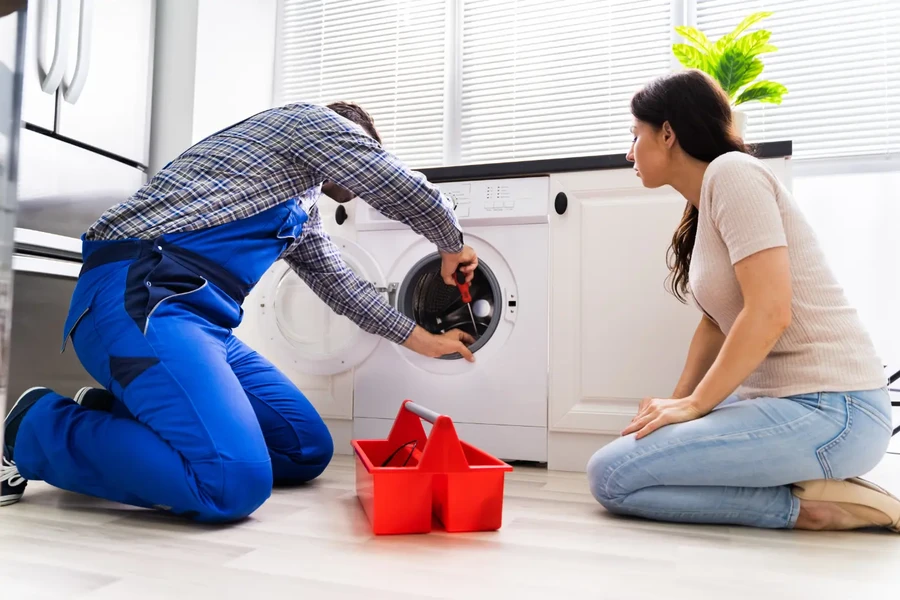Learn Simple Ways to Quiet Your Washing Machine
Noisy washers can be quite a headache. When your washer makes unusual sounds, it may signal a problem that needs attention. Before you pick up the phone and call a technician, try some basic troubleshooting steps. Doing so might help you fix the issue yourself, saving time and money. In this guide, we will explore common causes of noise in washing machines and provide practical solutions. We will also discuss when it’s wise to seek professional help.

Identifying Common Washer Noises
Washing machines can make various noises while running. Some sounds are normal, but others may indicate a problem. To start, observe where the noise comes from. Check if it happens during specific cycles like spinning or draining. Familiarize yourself with these typical troubling sounds:
- Banging or thumping during spins
- Squeaking or squealing noises
- Grinding or rumbling sounds
Understanding these noises will help you pinpoint potential issues before considering a washer repair service.

Checking for Loose Objects
Loose items often cause unwanted noise in washing machines. Coins, keys, or small clothing items stuck inside can lead to banging sounds. Start by examining the drum for any foreign objects. Remove them carefully to see if the noise stops. If not, proceed to look at other parts of the machine for signs of wear or obstruction.
Inspecting Washing Machine Level
An unlevel washer can produce thumping sounds during spin cycles. Make sure your machine is on a stable surface and level with the floor. Use a spirit level to check its balance. Adjust the legs as needed to stabilize the unit evenly. This step can resolve many noise-related issues without needing a washer repair service.
Examining Worn or Faulty Parts
Over time, certain components of your washing machine may wear out or become faulty. Inspect key parts such as belts, pulleys, and bearings for damage or wear signs. Tighten loose bolts and replace worn-out elements to reduce noise effectively. If you’re unsure how to do this, consult your machine’s manual or online resources for guidance.
Cleaning the Drain Pump and Filter
The drain pump and filter should be checked regularly to ensure they are clear of debris. Clogs in these areas can cause grinding noises during operation. Turn off your washer and clean out any lint or debris from the filter. Rinse it under water and reassemble it correctly. This maintenance step prevents unnecessary calls to professionals.
Evaluating the Drum Bearings
If you hear a loud rumbling sound, it could be due to worn drum bearings. These are crucial for smooth spinning motion and should be evaluated if noises persist. Replacing drum bearings can be complex, so only proceed if you feel confident in your skills. Otherwise, contacting an expert might be best.
Final Steps to Ensure Peaceful Washing
Troubleshooting noisy washers involves several proactive steps that don’t always require professional intervention. By identifying common noises, checking for loose objects, ensuring proper leveling, inspecting parts, cleaning filters, and evaluating bearings, homeowners can often save themselves time and frustration. However, if problems persist after performing these checks, it’s advisable to reach out to experts for assistance. Located in Fernandina Beach, FL, our dedicated team at The Specialist Appliance Repair provides reliable solutions to all your appliance concerns. Contact us today at (904) 556-7238 to learn more about how we can assist you!